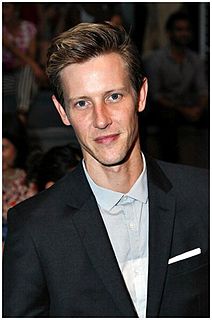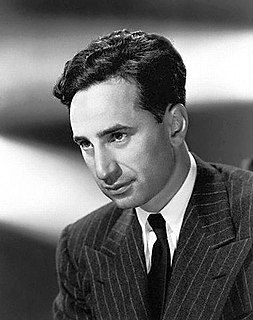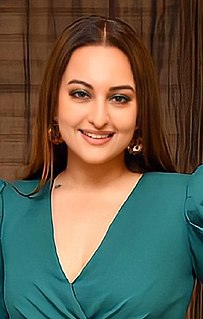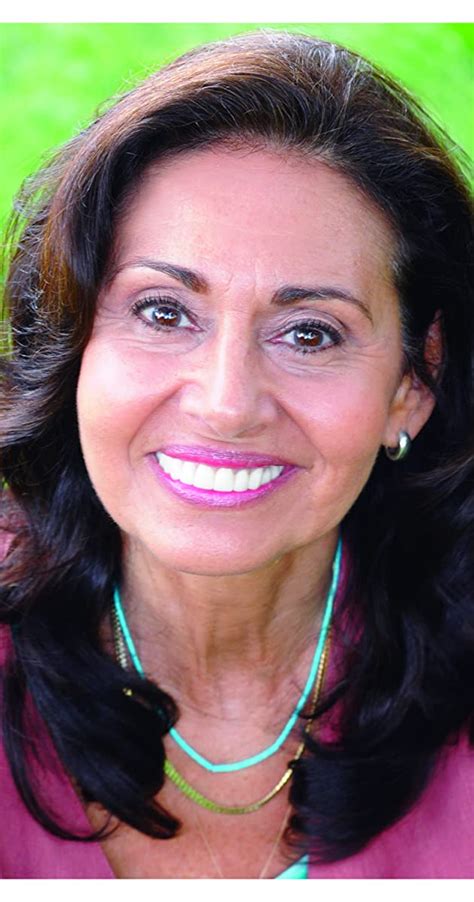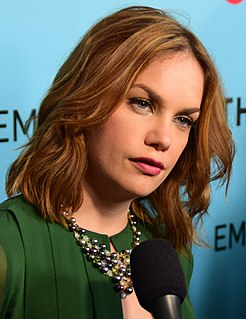A Quote by Finn Wittrock
Sometimes you're watching a great film actor, and if you stand 10 feet away from them, you're like, 'God, they're terrible. They're not doing anything.' And then you see the close-up, and it's so nuanced, and so much expression is happening. They were acting for that camera and for no one else.
Related Quotes
I know when I watch a film at this point, if I completely lose myself in the characters and the story and the world of the film I know that it's at least in my opinion, that was great. Otherwise I'm thinking: "Oh I know they were just doing A, B and C, right before they walked into the scene, then the camera was there, then they probably took the shot from this reverse close-up and moved it into this." When all of that drops away then I'm like: "Okay this was phenomenal, this was fantastic." I mean, any film or TV performance in general is probably good.
In the theater, you're so much more in charge as an actor. For better or for worse, you know what the audience is seeing. But you can be acting your socks off on film, and then you see the movie, and the camera is on the other actor, or they've cut out the lines you thought were significant, or they've adjusted the plot. So much of it is out of your control.
I feel like God has moved me into a different way of doing things. I teach basic on-camera acting class called Acting 101...In my classroom, the students get every ounce of encouragement and craft and anything I'm able to give them.We have some rules. We don't take the name of The Lord in vain. We don't use foul language when we mess up on camera...There's a climate of safety...They feel very protected.
Most people assume because I'm an actor that's all I know about and care about, I'm actually a camera geek and a film geek. I grew up making short films the same time I was acting. For me, it's a motion picture, not a play. I'm just as interested in what the camera department is doing and world building through costume design and production design as I am in acting. I think all good directors do that whether they're an actor or not.
Of course, you can never watch something like somebody else watches something like you, but nonetheless, you have to try. So I think on camera you learn a lot about how much the camera does for you, which is what is the great luxury of movie acting. Or acting whether it's TV or movies or whatever it is, that the camera's really such a gift because there's so much that it sees and does if you're willing to just be open and expose yourself and all of that. So you also learn what doesn't matter. And sometimes when you think about things, you think things matter that don't matter.
It's weird, I love acting and stand-up is a very unique, solitary thing where you are the writer, performer and director. But acting is incredibly rewarding, working and interacting with people to create funny moments. I can't imagine not doing acting or stand-up, I really enjoy both of them that much.
If you push in every time there's a big moment, then the tenth time you push in, you're not going to get the same effect. Or if you have too many close ups, then when you have a big moment and you want a close-up in order to make a point, it doesn't mean anything because you've already been doing close-ups. It's like writing in all capitals. Then after a while that doesn't mean anything. So, just because you can do something with a camera doesn't mean you should.
Nothing is more debilitating than to care about something you can't do anything about. And you can't do anything about your adult children. You can want better for them, and maybe even begin to provide something for them, but in the long run, you cannot do anything about someone else's vibration other than hold them in the best light you can, mentally, and then project that to them. And sometimes, distance makes that much more possible than being up close to them.


